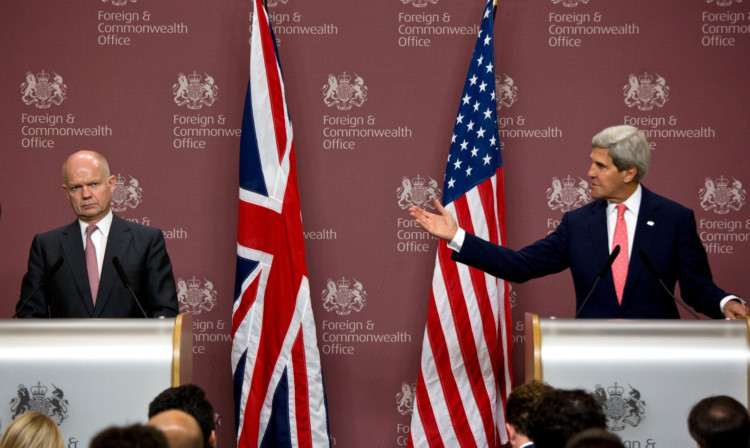A Russian plan for Syria to place its chemical weapons under international control was “hugely welcome”, according to Prime Minister David Cameron.
He warned it must not become a “distraction” from resolving the crisis over poison gas attacks on civilians in the country, however.
The proposal was made by Russian Foreign Minister Sergei Lavrov just hours after US Secretary of State John Kerry suggested Syrian President Bashar Assad might forestall international military action on his country by giving up his chemical arsenal.
Even though Mr Kerry made clear he had no expectation of Assad taking this step, Moscow seized on the idea as a potential solution to the current impasse over the international community’s response to the use of nerve gas sarin against civilians in a suburb of Damascus on August 21.
After talks in Moscow with his Syrian counterpart Walid al Moallem, Mr Lavrov said: “If the establishment of international control over chemical weapons in that country would allow avoiding strikes, we will immediately start working with Damascus.
“We are calling on the Syrian leadership to not only agree on placing chemical weapons storage sites under international control, but also on its subsequent destruction and fully joining the treaty on prohibition of chemical weapons.”
Asked in the House of Commons if he welcomed Moscow’s proposals, Mr Cameron said: “I’ve only recently heard this announcement myself. If that were to be the case it would be hugely welcome.
“If Syria were to put its chemical weapons beyond use under international supervision clearly that would be a big step forward and should be encouraged.
“I think we have to be careful though to make sure this is not a distraction tactic to discuss something else rather than the problem on the table. But if it’s a genuine offer, then it should be genuinely looked at.”
Downing Street indicated that any future decision by the Assad regime to hand over weapons would not detract from the need for a robust reaction to the poison gas attacks which have already taken place.
“A chemical weapons attack has happened,” Mr Cameron’s official spokesman said. “We are very clear about the judgment we have reached about the responsibility for that and that is why the central point about the need for a robust response remains.
He added: “I don’t think there is anything that should deflect us from noting that point.”
Mr Kerry’s comments came after talks in London with Foreign Secretary William Hague, at the end of a whirlwind tour of European capitals to rally support for President Barack Obama’s plan for “limited and proportionate” strikes against the Assad regime.
The US secretary of state briefed Congress ahead of a White House address by Mr Obama today and a series of votes in Congress over the next few weeks.
Mr Kerry said he understood public concern at the prospect of military action in the wake of the experience in Iraq but insisted that it would be a very limited intervention.
“We are not talking about war. We are not going to war. We will not have people at risk in that way,” he said.
Asked what President Assad could do to avoid military action, Mr Kerry said: “He can turn over every single bit of his chemical weapons to the international community in the next week.”
But he added: “He isn’t about to do it and it can’t be done, obviously.”
